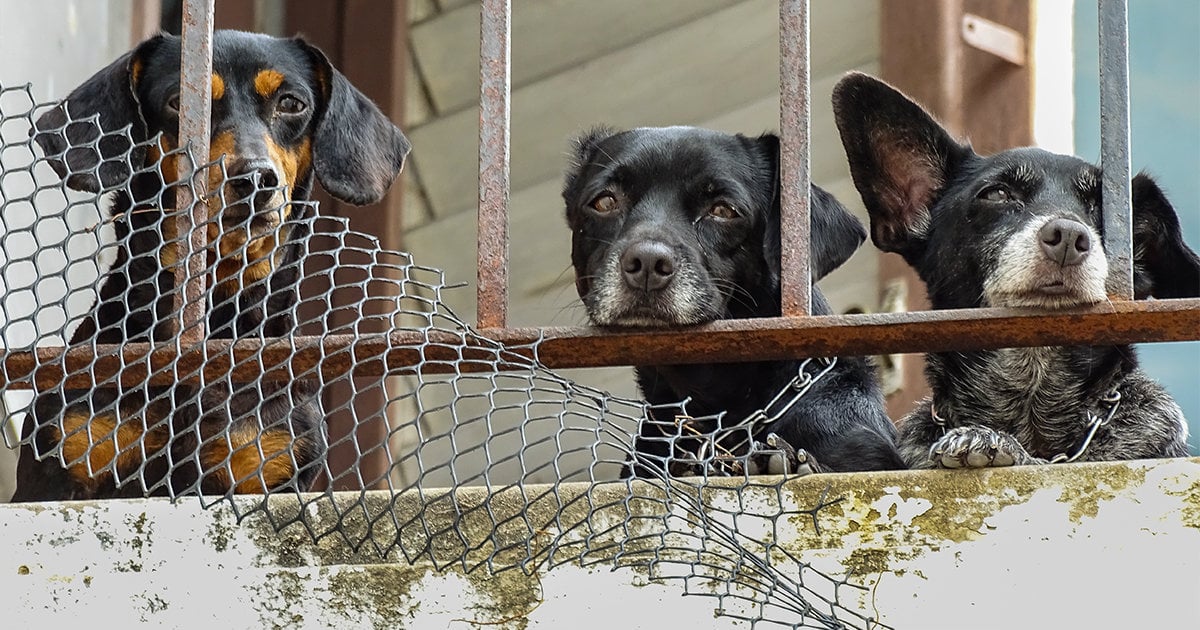
The Cuban government acknowledged on Friday that there is an increase in cases of animal abuse in the country, evidenced by the growing number of posts on social media denouncing inhumane and cruel acts, some of which end with the animals' death.
The National Center for Animal Health acknowledged in a note published on its website that, although the population systematically reports cases of abuse, many of these reports lack the necessary information to adequately investigate and take appropriate measures.
In order for complaints, reports, and statements related to animal mistreatment to be accepted and processed by the authorities, they must meet a series of minimum requirements, the institution pointed out.
He indicated that the complaint must obligatorily include the name and surname of the complainant, their contact information (phone and email), the exact address of the incident, and the affected animal species.
In addition, it should include a descriptive summary of the incident, as well as any evidence that may support the accusation, if possible.
These details are essential for the proper reception, verification, analysis, evaluation, and subsequent response to complaints, allowing authorities to investigate more accurately and take effective measures, the published note pointed out.
The text also mentioned that the Ministry of Agriculture of the Republic of Cuba, along with the National Center for Animal Health, the veterinary community, and animal welfare advocates, strongly condemn actions that compromise the well-being of animals.
However, despite this public rejection, inhumane practices continue to be a recurring problem, exposing the lack of effective control over offenders and the low severity in the enforcement of animal welfare laws in the country.
In relation to the channels, the institution published the contact list to report cases of animal abuse.
"Through the 'Poblasoft' platform, you can also directly file complaints, reports, and proposals at the following link: https://poblasoft.minag.gob.cu," the document pointed out.
However, the National Center for Animal Health published this statement on social media, provoking several reactions among the protectors.
Yadira Xiomara Romero García reported: “The increase in animal abuse that has emerged lately is quite ironic, as there was less abuse and animal mistreatment when the law did not exist compared to what we see since the law came into effect.”
The activist Yenney Caballero stated: "We need a fair law that protects our animals. Fines of 3,000 pesos do not stop the abuse that occurs daily. It's time to put a stop to this situation that has animal protectors overwhelmed."
"But, what information are they providing? I thought this was a change in the decree, and it doesn’t mention anything about changes, many requirements to report but I don't read anything about changes to fines and sanctions. Can anyone explain here what information they are giving? Because the information I read, we already know," expressed Star Blue.
For her part, Yamila Delgado Rivera pointed out: “Nothing justifies the barbarity to which animals are exposed; we demand a response like in other countries where the law severely punishes these manifestations against animal life.”
After the enactment of the Animal Welfare Law by the regime, many animal protectors raised their voices in discontent, considering it insufficient and not severe enough in the face of the growing wave of abuse.
An example of this ineffectiveness is that, since 2021, the government has established channels to report animal abuse, without this having succeeded in reducing such acts, as the regime itself admitted in September 2024.
What do you think?
COMMENTFiled under: